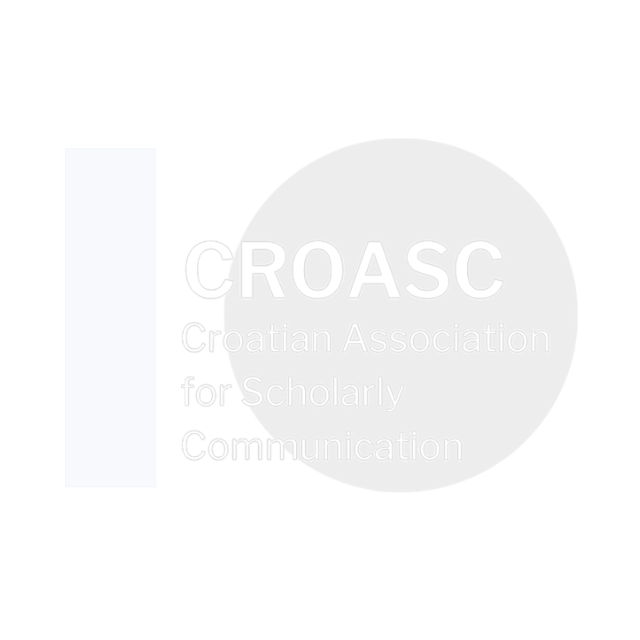Guidelines for Sharing Research Data on Human Participants
short talk × friday × 9.30-11.00
Marijana Glavica
University of Zagreb Faculty of Humanities and Social Sciences
Croatian Social Science Data Archive
Zagreb, Croatia
Vedran Halamić
University of Zagreb Faculty of Humanities and Social Sciences
Croatian Social Science Data Archive
Zagreb, Croatia
Data sharing has become an integral aspect of modern research methodologies, driven by both policy changes from research funding bodies and academic journals, and a growing recognition of its intrinsic benefits within the research community. In this talk, we will present the Guidelines for Sharing Research Data on Human participants, which were created within the COORDINATE project (European Commission, n.d.). This project aimed to build a network of researchers working to improve child wellbeing and to facilitate improved access to longitudinal survey data on child wellbeing.
The social sciences, particularly in comparative and longitudinal studies, have a longstanding tradition of data sharing, supported by infrastructures like CESSDA ERIC. However, persistent barriers, including privacy concerns, participant consent issues, intellectual property rights, resource constraints, fear of being scooped, potential data misuse, perceived lack of interest, data quality concerns, cultural resistance, and limited institutional incentives, continue to impede widespread adoption of data sharing practices. The Guidelines aim to dispel myths surrounding data sharing risks, address researchers’ concerns, and provide pragmatic solutions to common challenges.
Each section in the first part of the Guidelines begins with statements expressing reasons not to share data. These statements were identified using different methods and several sources. First, we took the statements about reasons why not to share data from the materials published by the UKDA in the Managing and Sharing Data: Training Resources (Corti, Van den Eynden, Bishop, & Morgan-Brett, 2011), adapted and supplemented these with insights gathered through various interactions between data archive staff and researchers, as well as conversations with colleagues in data archiving domains. Furthermore, we scanned literature about researchers’ data sharing attitudes, motivations and behaviours (Houtkoop et al., 2018; Kim and Adler, 2015; Kim and Stanton, 2016; Tenopir et al., 2011; Tenopir et al., 2015) to identify other possible concerns and learn how to organise and present them. These sources often also include some possible answers to identified concerns.
Privacy, confidentiality, and ethical considerations remain central to researchers’ hesitation. The guidelines explain how GDPR formalises existing ethical practices and how confidentiality can coexist with responsible data sharing. Researchers are encouraged to adopt clear, tailored informed consent processes, differentiate between personal and research data, and educate participants on controlled access mechanisms. Strategies for anonymizing quantitative and qualitative data are provided, emphasizing the balance between data protection and research utility. Concerns about publication priority and data misuse are countered by promoting datasets as citable scientific outputs, and encouraging comprehensive documentation and formal access agreements. Institutional and cultural inertia are acknowledged as significant obstacles. The Guidelines call for universities and funding bodies to incentivize and recognize data sharing efforts.
In the second part, the Guidelines stress the necessity of proper data management planning as an essential precursor to effective data sharing. Effective data management not only supports compliance with ethical and legal standards but also significantly contributes to data integrity, facilitating data reuse and research reproducibility. Researchers are advised to adopt comprehensive documentation and metadata standards, thereby mitigating risks associated with data misuse or misinterpretation.
Specific practical steps for data sharing outlined in the Guidelines include defining clear objectives for data sharing, selecting appropriate domain-specific repositories tailored to specific research fields and capable of ensuring rigorous ethical standards, and preparing datasets thoroughly with detailed documentation and metadata. Access controls and appropriate licensing options are discussed, providing researchers with guidance on how to share data responsibly while protecting participants’ privacy and data integrity.
A preprint version of the Guidelines is available on Zenodo (Glavica & Halamić, 2025). After receiving feedback from the broader community, including this conference audience, the Guidelines will be published under the CESSDA brand.
keywords
data sharing; data management; research ethics; informed consent; research integrity
References
Corti, L., Van den Eynden, V., Bishop, L., and Morgan-Brett, B. (2011). Managing and sharing data: training resources. UK Data Archive. https://www.data-archive.ac.uk/resources/
European Commission (n.d.). COhort cOmmunity Research and Development Infrastructure Network for Access Throughout Europe (COORDINATE) [Project page]. https://doi.org/10.3030/101008589
Glavica, M., & Halamić, V. (2025). Guidelines for Sharing Research Data on Human Participants. Zenodo. https://doi.org/10.5281/zenodo.15267610
Houtkoop, B. L., Chambers, C., Macleod, M., Bishop, D. V. M., Nichols, T. E., & Wagenmakers, E.-J. (2018). Data Sharing in Psychology: A Survey on Barriers and Preconditions. Advances in Methods and Practices in Psychological Science, 1(1), 70–85. https://doi.org/10.1177/2515245917751886
Kim, Y., & Adler, M. (2015). Social scientists’ data sharing behaviors: Investigating the roles of individual motivations, institutional pressures, and data repositories. International journal of information management, 35(4), 408-418. https://doi.org/10.1016/j.ijinfomgt.2015.04.007
Kim, Y., & Stanton, J. M. (2016). Institutional and individual factors affecting scientists’ data‐ sharing behaviors: A multilevel analysis. Journal of the Association for Information Science and Technology, 67(4), 776-799. https://doi.org/10.1002/asi.23424
Tenopir, C., Allard, S., Douglass, K., Aydinoglu, A. U., Wu, L., Read, E., Manoff, M., & Frame,bM. (2011). Data Sharing by Scientists: Practices and Perceptions. PLoS ONE, 6(6), e21101. https://doi.org/10.1371/journal.pone.0021101
Tenopir C, Dalton ED, Allard S, Frame M, Pjesivac I, Birch B, et al. (2015) Changes in Data Sharing and Data Reuse Practices and Perceptions among Scientists Worldwide. PLoS ONE 10(8): e0134826. https://doi.org/10.1371/journal.pone.0134826










